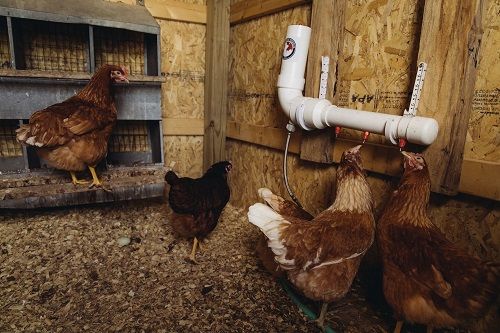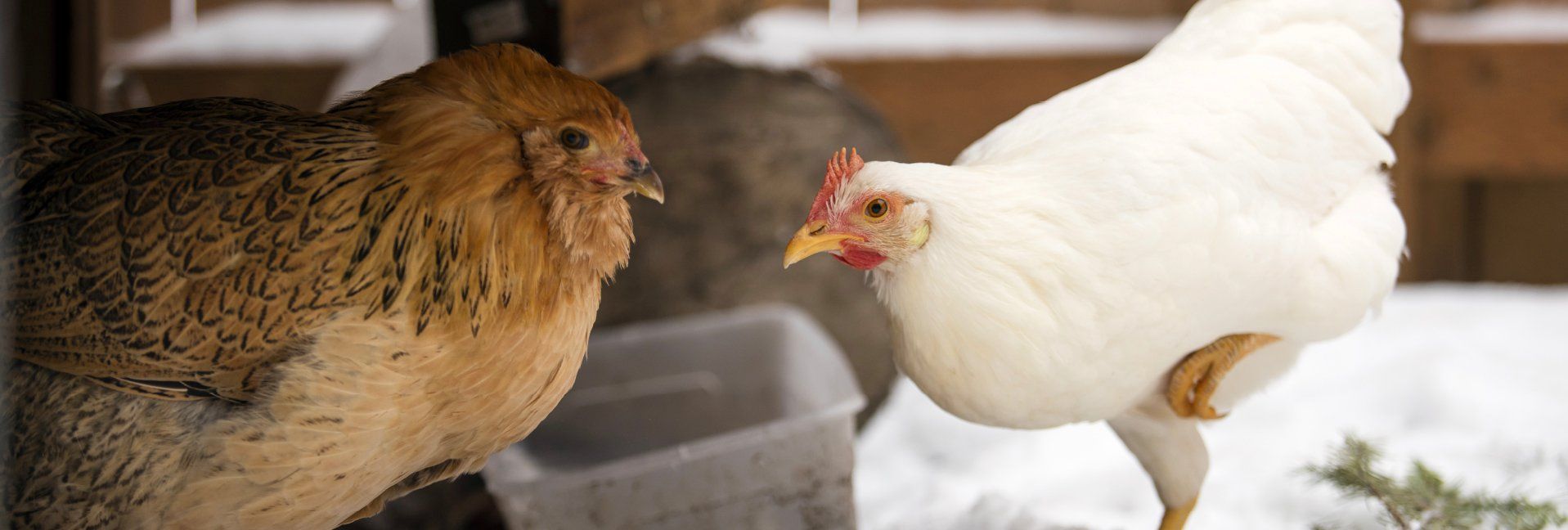Poop in the Coop and Everywhere Else
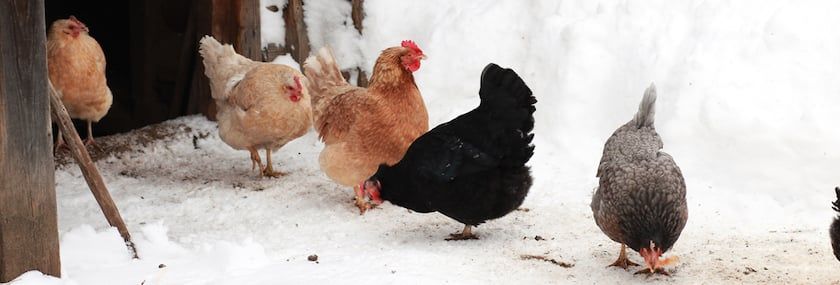

Why do chickens poop so much?
So, if you have chickens or a chicken, you have probably noticed something that happens quite regularly and quite often. Chickens poop, they poop a lot and they poop everywhere.
They poop enough to probably make you wonder how many chickens you have…and whether some have joined the flock without you knowing it!
There’s probably also been times when you have noticed chicken poop everywhere, but never seen one sign of pee.
Why do chickens poop or pee? Well, the simple answer is to remove waste from the body.
Waste must be removed from the body, and physiologically there are several ways to remove waste; perspiration, urination, and defecation.
If waste is not removed from the body, toxic substances can build up, pH balance can be messed up, blood pressure can increase, etc. All of these can lead to illness and eventually death.
Chickens do not sweat or perspire, so they must remove wastes through defecation and urination.
Why don’t they have to pee?
Before we delve into “why chickens poop so much,” let’s look into the anatomy and physiology of chicken poop.
Chickens and all poultry have a combined waste called excreta that is feces and urine combined in the large intestine. Chickens do not have a bladder, so urine from the kidneys moves into the cloaca and by the act of reverse peristalsis is transferred into the large intestine.
In the large intestine excess water is removed, mammals are much better at concentrating their urine in the kidneys and excretory tract, but this allows birds to concentrate their urine and remove excess water.
Urine is concentrated and formed into a thick pasty substance that is high in uric acid—this is the white substance in excreta.
So, now you know the answer to that age old question, do chickens urinate? Technically, the answer is no.
What goes out…
The primary reasons that chickens produce a lot of excreta are that they have a relatively high rate of feed passage, and let’s face it they eat a lot. So, what do I mean when I say they have a “high rate of feed passage?”
Well, when chickens (or really anything) eats and food begins to move through the digestive system, normally it moves at a certain speed also known as rate of feed passage. This rate is fairly constant, unless the individual is sick or has some other gastrointestinal issues. For a chicken the rate of feed passage is less than 24 hours.
This means that within a 24 hour time frame, anything and everything that a chicken eats will travel through the entire digestive system and either be utilized or excreted out the cloaca.
Chickens are also one of the most “regular” animals on the planet, with large mature chickens being able to poop roughly every 30 minutes. Smaller chickens are actually able to go more often.
…equals what goes in
So, now we know what excreta is and why birds only have one type of waste, let us look at why they “poop” so much (and from now on I will use the physiologically correct term of excreta).
Why do they excrete so much? Well, the short answer is that they eat a lot and cannot use all of the food that they eat. Remember all things eat for energy. Unfortunately, animals are not perfect digesters and cannot utilize everything that is eaten, and have to remove waste.
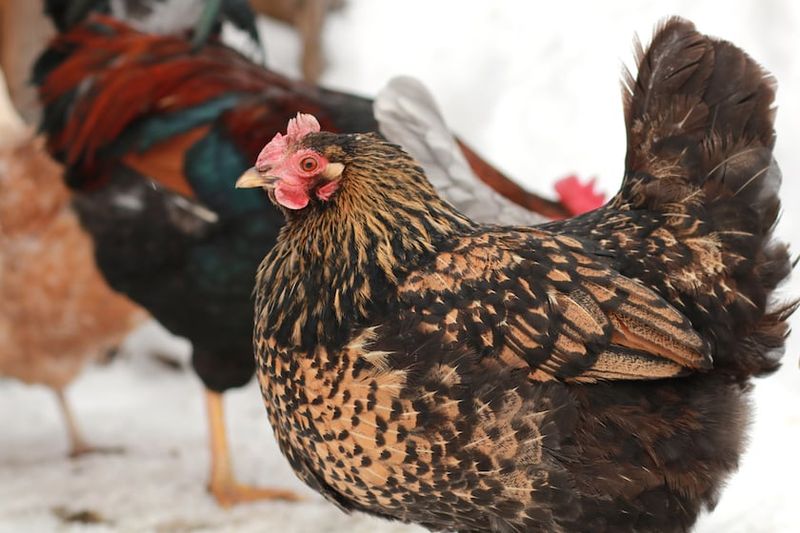
Let’s look at something called feed conversion to give an example of why birds excrete so much waste. So, if feed conversion of a growing broiler chicken is 2 pounds of feed per pound of gain, this means that for every 2 pounds of feed a broiler eats it will gain one pound of body weight.
And what happens to that other pound of feed consumed? (Remember, matter can never be created or destroyed.) That extra pound must go somewhere, and guess where it goes: Out the back end.
If we are talking egg-laying hens, the feed conversion ratio for a dozen eggs ranges between 2 and 2.5 pounds of feed per dozen eggs. Mature laying hens when fed a proper diet are not going to be gaining weight like a pullet or a broiler chicken; they are putting most of the energy into egg production and the rest goes for body maintenance.
A dozen large eggs will weigh roughly 24 ounces, on average. What this means is that between a half and a pound of feed could be excreted per dozen eggs laid. These numbers really begin to add it very quickly. For example; 10 broiler chickens slaughtered at 5 pounds could produce 50 pounds of excreta or waste over their lifetime; while 12 laying hens could produce a pound of excreta per day.
Liquid flows
Remember that chickens don’t urinate? Well, unfortunately they do drink a lot of water. In fact, chickens will drink more than twice as much water as feed they consume. So, for our previous examples a broiler would consume 20 pounds of water, that’s over 2 gallons!
Laying hens would consume almost 5 pounds of water per dozen eggs, which is over half a gallon. Just like feed chickens cannot utilize all of the water that they consume, the amount of water excreted as waste will vary tremendously depending on several factors, including ambient temperature, egg production, and so on.
Water is very important for life, and meat and egg production.
Finally, you have probably wondered why chickens tend to excrete everywhere and anywhere, unlike a lot of animals that have certain places where they prefer to leave their waste.
Consider that chickens have very poor sense of smell (if they have any at all), and most animals use feces or urine as a way to mark territory or locations. So, they do not really care where their excreta lands. There are certain times when they may excrete more. If you wanted, you could use this to your advantage to concentrate some of the waste.
Chickens will generally excrete more when they are drinking and on the roost.
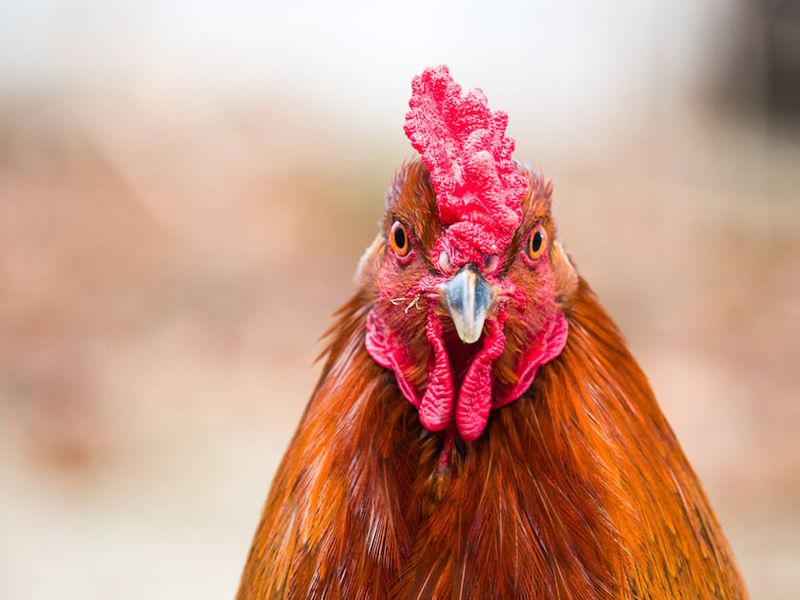
So, at this point you may be asking yourself “what can I do to reduce all this waste?” The answer, unfortunately, is “not much.” Healthy chickens are going to keep eating and drinking, but this is good, it means that they are normal, well cared-for healthy animals.
Fortunately, chicken excreta is very good fertilizer and generally is absorbed into the soil rather quickly.
While yes, chickens do “poop” a lot it should generally be taken as a sign of good health.
Tags:Hands-on Help

Chicken Whisperer is part of the Catalyst Communications Network publication family.








